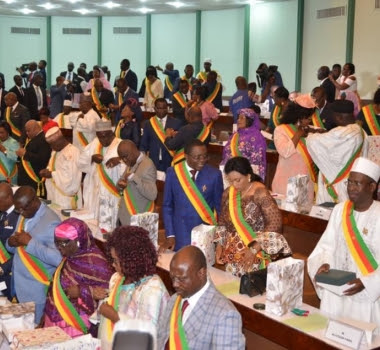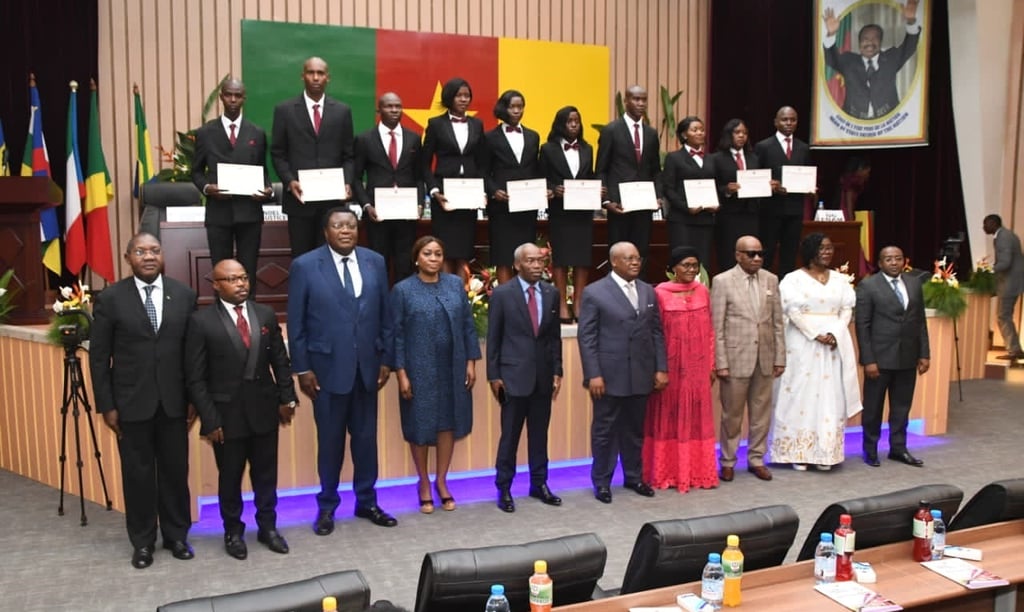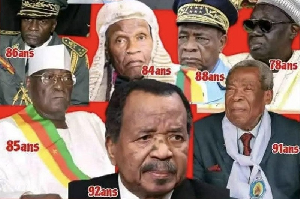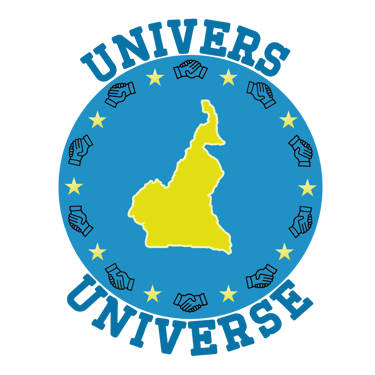Chapter 4 – Citizen Participation in Public Affairs Management


In democratic practices, citizens of a country, without discrimination, are called upon to participate in the management of public affairs. This participation can be indirect: citizens elect those responsible for managing public matters. This is done periodically through elections. Citizen participation can also be direct—meaning that the people themselves decide on a specific issue related to public governance, as is the case with referendums.
Participation is also direct when citizens are recruited as civil servants. On a daily basis, these public officials manage state affairs and are therefore expected to work for the development of Cameroon and the well-being of their fellow citizens within the framework of the public service. However, the goals assigned to the public service are often difficult to achieve due to numerous issues related to the selection of individuals entrusted with public responsibilities—issues that must be addressed with lasting solutions.
The Problem
Cameroon’s civil service—whether in administrative bodies or public enterprises—falls short of the efficiency and performance standards it should meet. This inefficiency hinders Cameroon’s development, even though public service is one of its key drivers.
For the UNIVERS Party, the root cause of this dysfunction lies, among other things, in the individuals running the public service. Many are incompetent, lazy, unmotivated—some victims of stagnation due to being in the same position for far too long. Too often, they focus on personal or tribal interests, forgetting that they are supposed to work for the common good.
The Solutions
To address this issue, the UNIVERS Party proposes to rethink both the recruitment conditions (Theme 1) and the exit process (Theme 2) for public service personnel.
Theme 1 – Access to Public Service


The UNIVERS Party aims to put an end to the many irregularities commonly observed when citizens access public positions, whether by competitive examination (Measure 1), through a system that respects regional balance (Measure 2), elections (Measure 3), or by appointment to technically demanding roles (Measure 4).
Measure 1 – Public Service Entrance Exams
Public positions must be entrusted to the best in the country. For this reason, all access to civil service roles must occur through public competitive exams.
Public and semi-public enterprises must issue widely publicized job offers to ensure that all potential Cameroonian candidates are aware and can apply. The current ambiguity surrounding recruitment—which enables favoritism based on friendships, family ties, or tribal affiliations—must end.
Candidates must go through transparent and merit-based tests, allowing every participant to assess the skills and talents of others. This system might involve:
· An elimination round in the form of a written exam to determine those who are admissible;
· A final round where the admissible candidates compete publicly, with jury members acting as referees to identify the best among them.
This transparent system would eliminate fraud and favoritism, enabling the recruitment of the most competent and deserving individuals. Even unsuccessful candidates would understand that others outperformed them, preserving the credibility of the process.
Such an approach would restore the dignity of civil servants—whose pride would no longer stem from knowing the right recruitment channels, but from being genuinely recognized as one of the country’s best.
Measure 2 – Respecting Regional Balance
Cameroon needs a harmoniously developed public service that includes citizens from all parts of the country. For this reason, recruitment has traditionally followed a policy of "regional balance", allocating quotas to each region.
However, in practice, regional balance has devolved into tribal balance, fostering nepotism and manipulation. This is largely due to the lack of a clear and fair definition of what constitutes a person’s "region of origin".
The UNIVERS Party proposes that this issue be debated nationally. Should a person’s origin be determined by their place of birth? That of their ancestors? Their place of residence over a long period? Or perhaps where they have invested the most?
Once Cameroonians agree on these criteria, it will be easier to implement equitable recruitment practices.
With real decentralization or federalism—depending on the model chosen—recruitments could be managed directly at the regional or federal state level, while still maintaining balance within each region or state (e.g., by department or district).
Those selected for central government roles would come from among those already recruited at the regional or federal level and would need to demonstrate experience and good moral standing.
The objective: a public service that combines merit and regional representation. The first phase of the exam (eligibility) would be merit-based only. During the final phase, candidates could be grouped by locality (region, state, department…) to ensure the best from each area are chosen.
Measure 3 – Elections to Public Office
In terms of elective public positions—municipal, regional, parliamentary, and presidential—the UNIVERS Party acknowledges that Cameroon’s electoral system has made important strides toward transparency and fairness.
ELECAM, the public elections body, manages the electoral process. Voter registration is digitized. Candidates have representatives at polling stations and vote-counting bodies.
However, improvements are still needed—particularly in ensuring all political forces are represented in decision-making bodies, such as ELECAM’s Electoral Council. For example, parties represented in Parliament could be granted quotas to appoint Council members.
The issue of the Constitutional Council’s composition will be addressed during judicial reforms (see Chapter 11).
To fight voter corruption, the UNIVERS Party proposes the single ballot system—to prevent candidates from purchasing unused ballots from voters, a common tactic.
Another issue is the excessive financial barrier to candidacy:
· 30 million FCFA for presidential candidates,
· 1 million FCFA for MPs,
· 50,000 FCFA for municipal councillors.
These amounts exclude average citizens from running. The Party advocates for lowering these fees to democratize participation.
Moreover, since public governance is primarily intellectual, highly educated individuals or those recognized for their intellectual contributions should be allowed to run without paying large fees. Exemptions could apply to:
· Holders of advanced university degrees,
· Renowned intellectuals,
· Former high-ranking public servants.
Measure 4 – Appointments to Technical Positions
In Cameroon, public service roles are often treated as rewards, handed out by those in power to friends or loyal supporters. This results in unqualified individuals being appointed, to the detriment of national interest.
The UNIVERS Party aims to end this practice. Apart from sovereign positions, where political discretion applies, all appointments to technical posts must go through open calls for applications.
Technical committees would be set up to evaluate applications and verify whether the candidates are truly qualified for the role. The person chosen would therefore be appointed based on merit and proven expertise.
Theme 2 – Exiting the Civil Service


In Cameroon, as in most African countries, a position in the civil service is seen as a treasure. A civil servant who secures a post treats it as a personal or family matter; they speak of “their post,” which they consider a tool for material and personal enrichment. They see anyone aspiring to the same position as an enemy. As a result, post holders will do everything in their power to hold onto “their position” for as long as possible—forever, if they can. To change this mindset among public servants, the length of time spent in civil service positions must be limited, while also encouraging voluntary retirement.
Measure 1 – Limiting the Time in Civil Service Positions
To help citizens detach from civil service posts and stop treating them as personal property, the UNIVERS Party proposes a policy limiting the duration of holding positions of responsibility. Such a policy would allow more Cameroonians to serve in various posts, giving each person a chance to contribute to nation-building. It would also push incumbents to be more careful in their management, knowing that in a short time, their successor will demand an audit before taking over.
The UNIVERS Party proposes a two-term limit for elected political positions: President of the Republic, Member of Parliament, Regional Council Member, Municipal Councilor, Mayor… Holding the same position of responsibility within the public administration or public enterprises should not exceed five years.
Measure 2 – Encouraging Early Retirement from Civil Service
The failure of national development policies is partly due to the lack of private sector development. All the nation's talent and intelligence is focused on public sector jobs. Young graduates emerging from the education system dream only of becoming state employees. This is understandable, given that—oddly enough—state employees are among the wealthiest Cameroonians in terms of money and property. They owe their material wealth mainly to corruption and the embezzlement of public funds.
As part of its strategy to promote the private sector, the UNIVERS Party proposes measures to encourage Cameroonians to turn away from public service. Citizens must not build their lives on the idea of getting rich off the back of the State. A civil servant who feels they have served the State enough should have the right to retire voluntarily, at an age that still allows them to invest in the private sector.
They would receive a capital payment from the State, which would enable them, if they so choose, to create a private business. This capital could be complemented by a bank loan guaranteed by the State, to help the former civil servant transition into private entrepreneurship.
